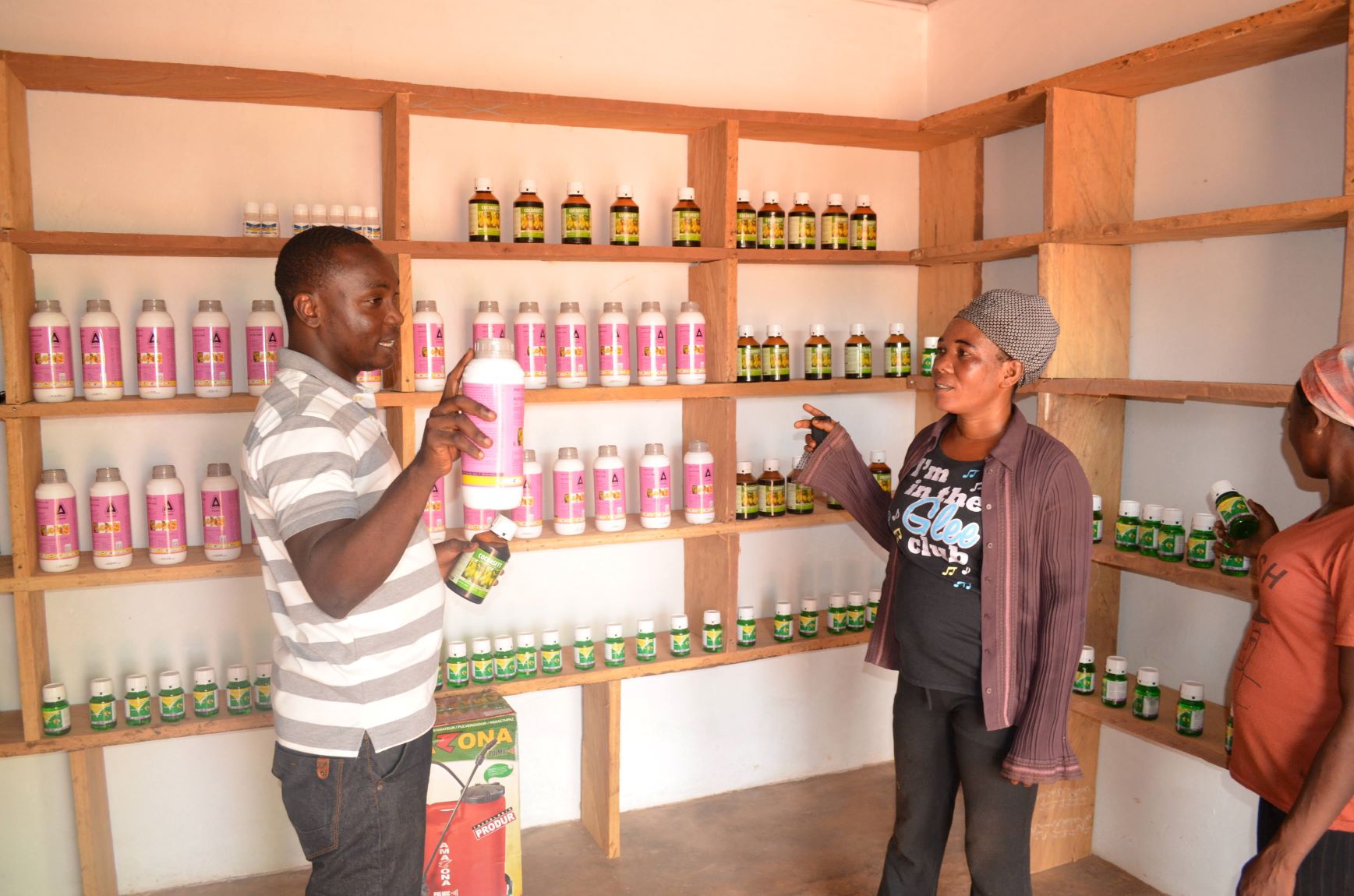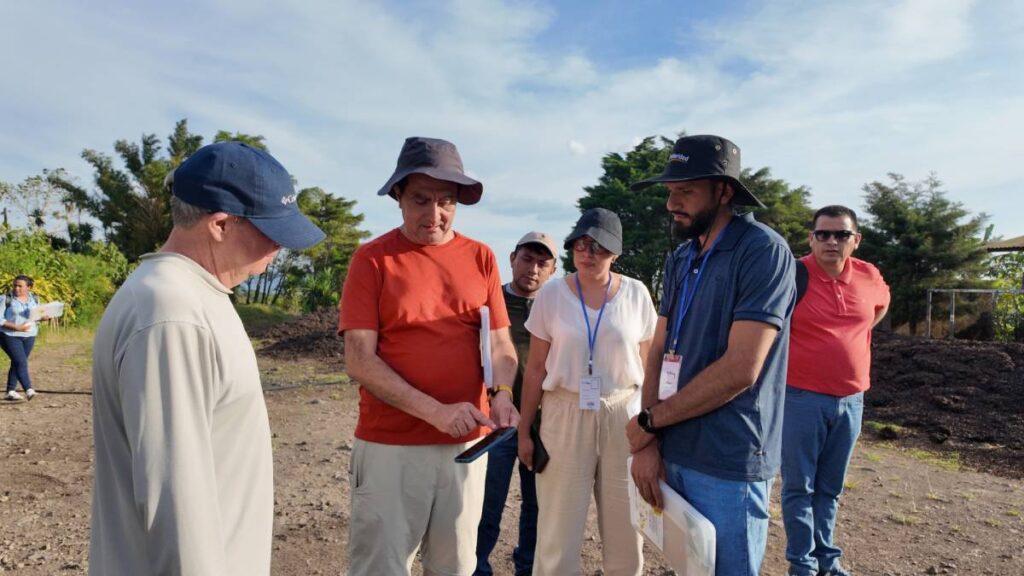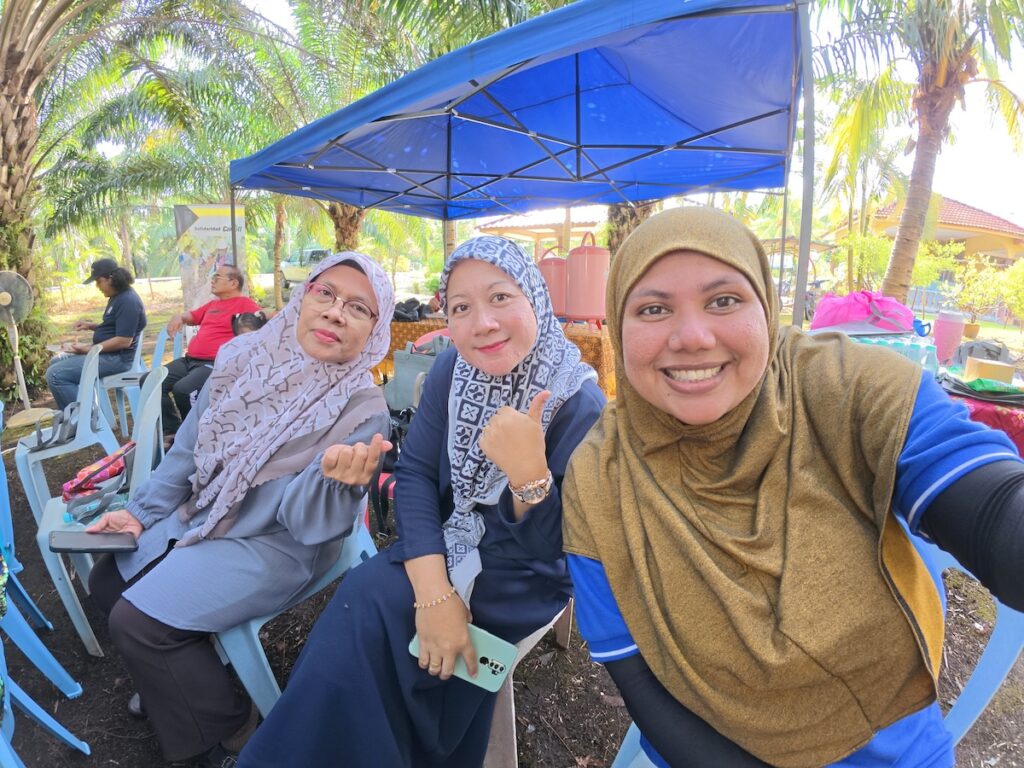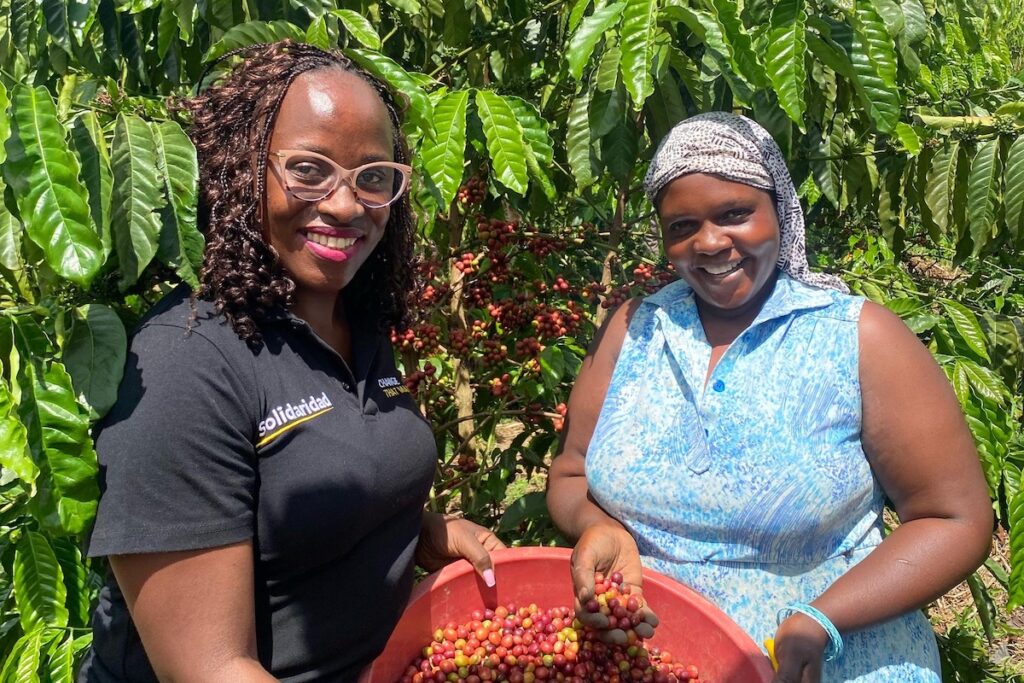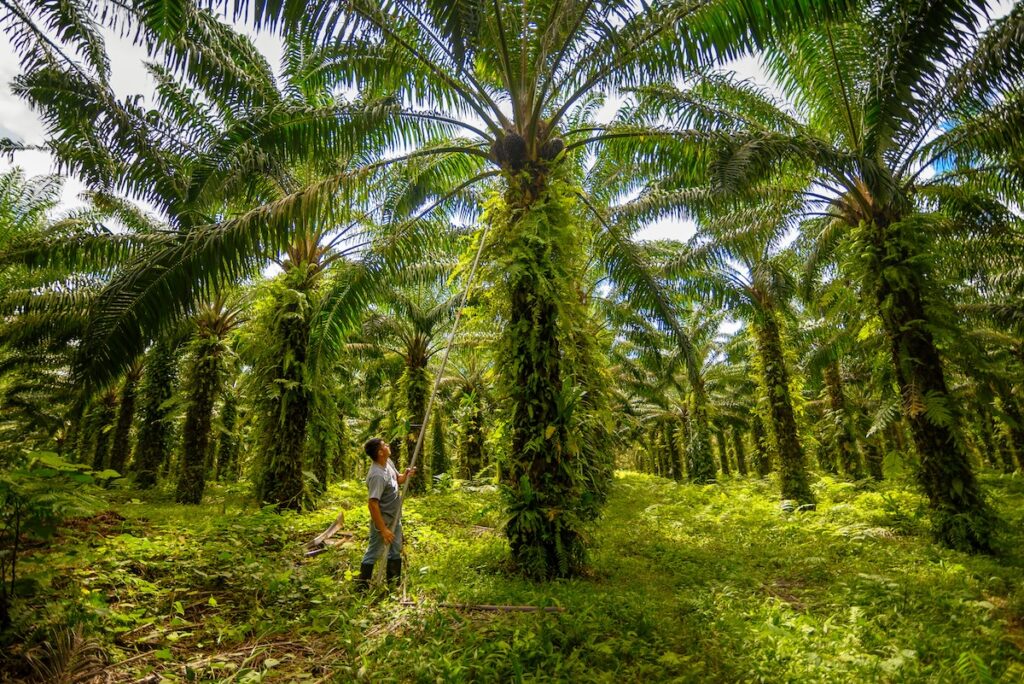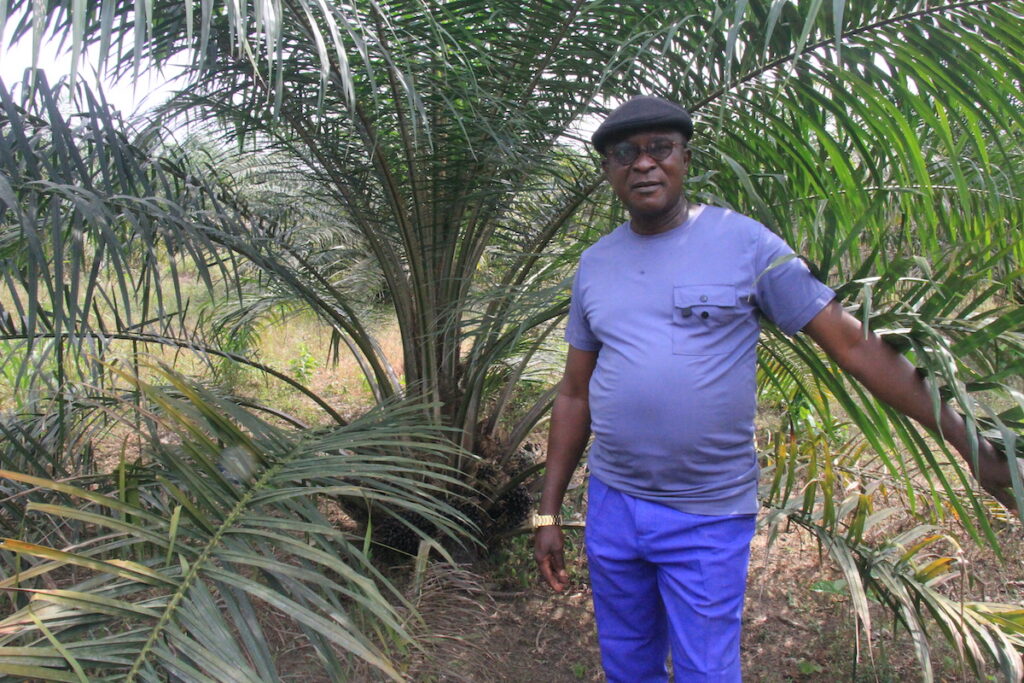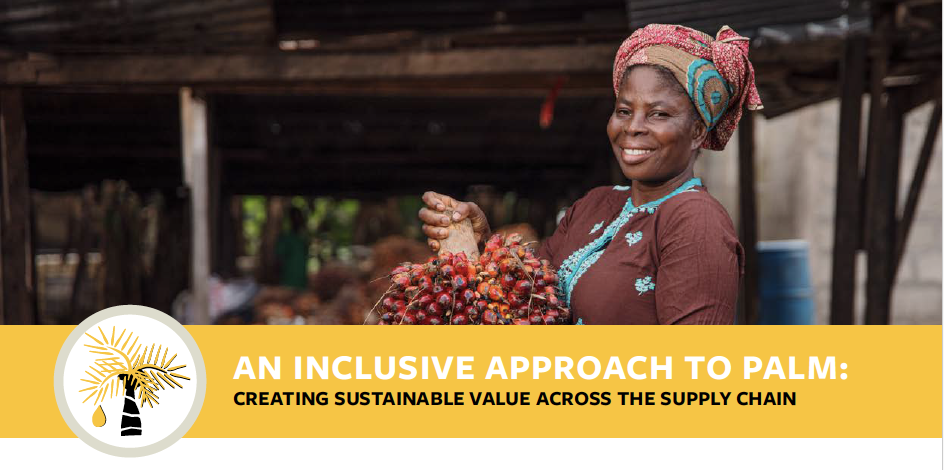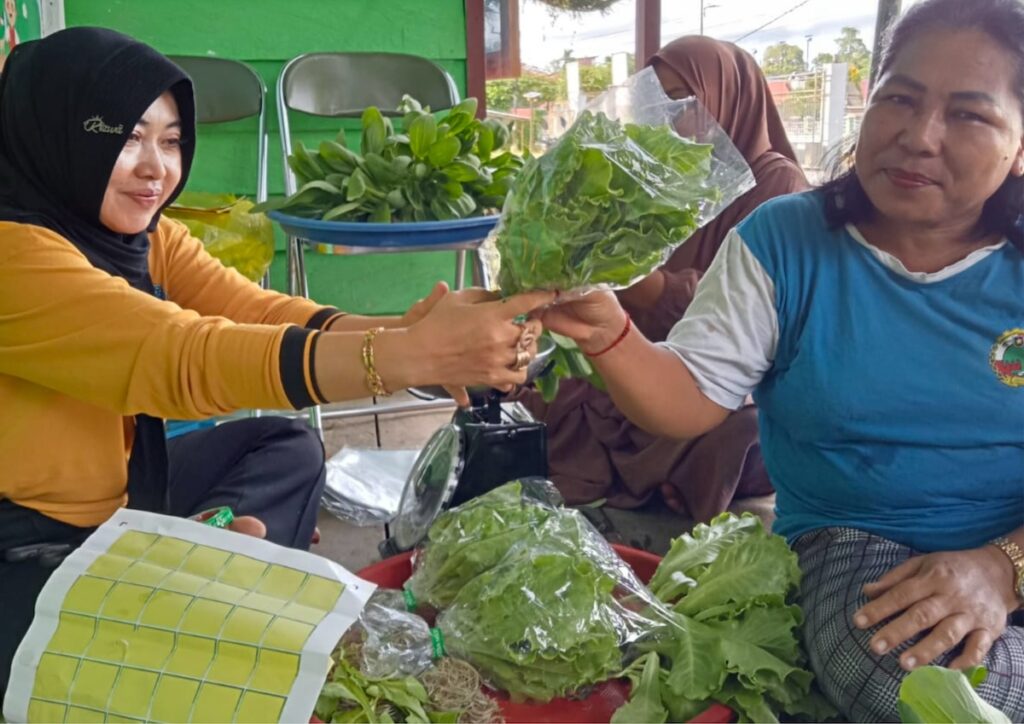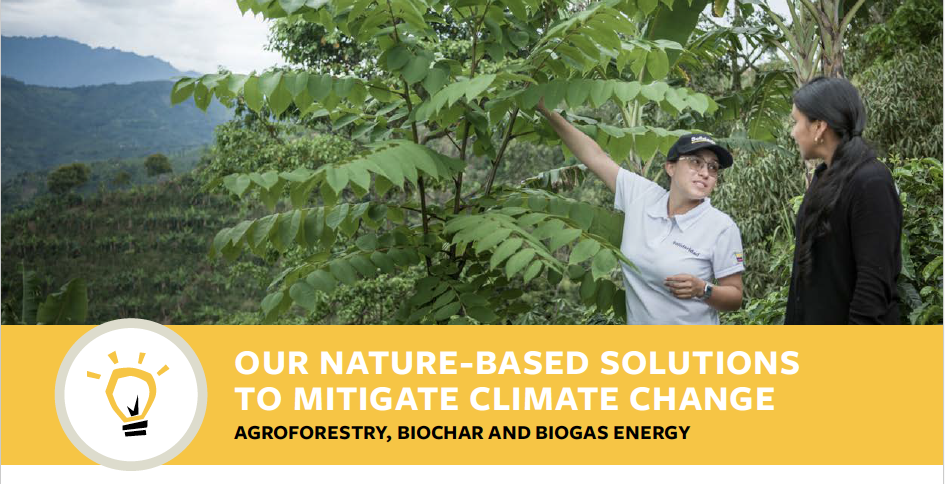In this project, we have also worked towards enabling the access to start-up capital to private sector entrepreneurs to establish such service providers, known as Rural Service Centres (RSCs). Working in this complex context, the project implementation encountered both successes as well as some challenges. We also gathered important lessons learnt about working together with service providers and enabling access to finance for their small and medium enterprises. The insights gained in this project have further emphasized the importance and urgent need to scale access to finance solutions and to facilitate investments and innovative financing in the agricultural sector in Ghana.
Closing the gap in service provision and financing
Solidaridad’s previous projects have proven that with the introduction and adoption of best management practices at farm level, average yields can reach up to 16-18 tonnes/ha/year, doubling or even tripling average smallholder yields of 6 tonnes/ha/year. However, although farmers are willing to adopt the BMPs, they are not able to do so effectively due to an aging farming population, unavailability of labour, and limited access to required inputs. With this project, built upon Solidaridad’s Sustainable West Africa Palm Oil Programme (SWAPP), we have continued working towards establishing and developing independent rural service providers in four regions in Ghana to specifically reach and serve smallholder farmers.
For this purpose, we launched a new partnership with Achmea Foundation and Henkel to close the gap on two important fronts. Firstly, to improve access to service provision for smallholders to professionalize agriculture as a business. Secondly, to enable access to finance for entrepreneurs who bring crucial services to smallholder farmers and help to create employment for rural youth. This is an important alternative to the currently vulnerable reality of the lack of rural employment opportunities, and insecure income from wages earned by working as day labourers in agricultural fields.
Access to finance for small and medium entrepreneurs is a major struggle in the agricultural sector in Ghana. Most impact investors tend to look at deal sizes of over 250,000 dollars, which excludes the service providers Solidaridad works with as the loans they look for are considered too low. Local financial institutions overlook the SME segment in agriculture, because it is unknown territory and therefore perceived as risky. With this project, Solidaridad is testing the financial viability of this model and developing the proof of concept.
All these factors create a context in which service provision to farmers is difficult to realize: Investors don’t consider financing entrepreneurs in service provision; banks require security and the business model has not yet proven itself; the nature of agricultural employment is informal, and service provision is not accepted or is not part of the daily reality of smallholder farmers, as the services offered by the RSCs are very new in the existing market. Still, Solidaridad believes professionalization of agriculture is critical to improve sustainability in the sector, and can deliver multiple benefits by creating employment, optimizing yields, improving rural livelihoods and reducing pressure on the environment through intensification instead of land expansion.
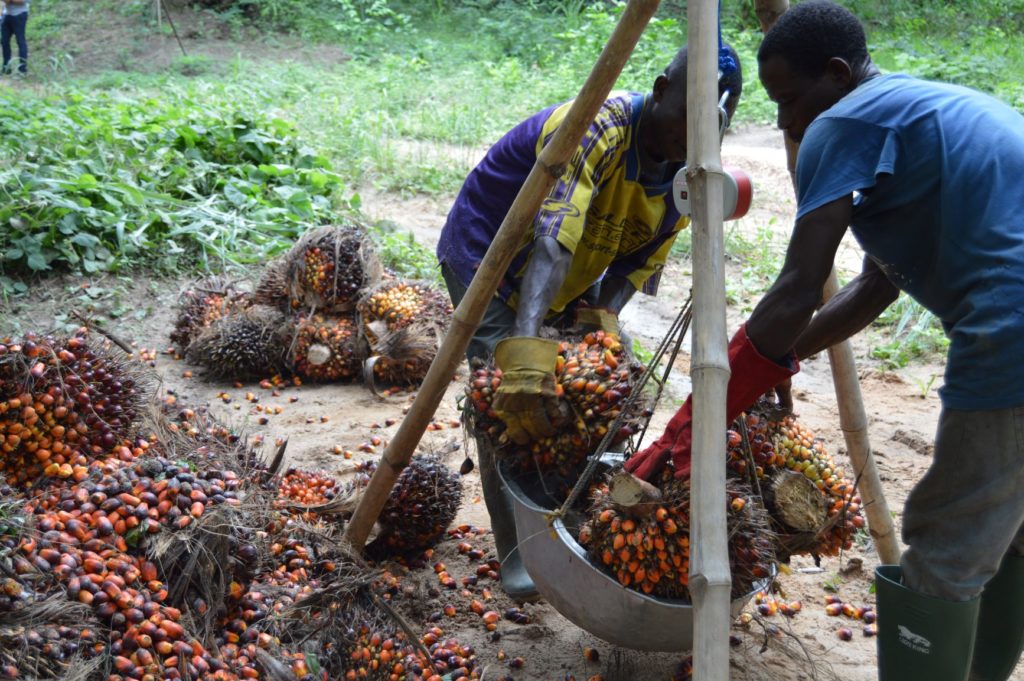
Our approach on SMEs: selection, support and services
In 2018, Solidaridad successfully established the franchise company WAFAS to operate as an intermediary and facilitate semi-commercial loans to carefully selected agricultural SMEs. WAFAS is the driving force in implementing the service provision business model, working in close cooperation with the SMEs and providing them with business, accounting, management, and investment support. In addition, training on technical skills and agronomy for best management practices in oil palm is included to ensure quality service provision to farmers.
Since 2018, four Rural Service Centres have been established in the palm oil sector in Ghana, which are currently piloting the service delivery model, bringing expertise on BMPs, inputs and skilled labour services to palm oil smallholders in the region.
Inclusive and innovative financing model with Achmea Foundation
Our partnership with Achmea Foundation has been essential to the innovative approach of this project, in particular the combination of grant funding and loans. This innovative approach to project finance is geared to set up businesses which can continue service delivery in the long term. The combination of grant funding and commercial finance is unique, because it enables capital investment and capacity building in the start-up phase as well as working capital for the proof of concept phase.
Achmea Foundation has recently provided an additional loan to enable the continuation of the project and support the RSCs to reach their targets in service delivery for oil palm smallholders. The optimistic aim was for the RSCs to earn stable revenues as financially viable and commercial businesses by the official end of the project in 2020. While this goal has not yet been achieved, the project has come a long way in creating the conditions for success in the near future.
Achmea Foundation Impact Fund invests in the socio-economic strengthening of communities in rural Africa through making investments in innovative projects in the areas of agriculture, healthcare and finance, with an emphasis on sustainability and technology. This palm oil project in Ghana implemented by Solidaridad is a fine example of this. We are very proud of the results and the impact which Solidaridad has so far achieved with this project. The innovative approach to project financing enables these smallholder farmers to become self-sufficient in the long term.
Achmea Foundation
Case example: collaboration with SME Agro Quorum
Agro Quorum is one of the selected SMEs participating in the project. Agro Quorum is a farm management firm which provides farm maintenance services such as weeding and pruning. Agro Quorum currently manages 560 hectares for a mixed clientele of both plantations and smallholder farmers. By working with Agro Quorum, plantations are assured of timely and constant supply of the necessary workforce, while smallholders value the affordable and trustworthy service which is now accessible to them through a prefinance arrangement. The impact of service delivery at farm level is already reflected in higher yields, as a result of improved farm access and increased harvest intervals, benefitting both farmer incomes as well as showing the value of this type of service provision.
Through the project, Agro Quorum aims to reach more smallholder farmers by working through local cooperative structures at community level, which allows scale in number of farmers included, efficiency of planning in farm maintenance services, and ensures that the costs of services are as low as possible. While the greatest need for service provision is with smallholder farmers, Agro Quorum still relies on larger clients (i.e. plantations) to make their business viable and to be able to show purchase orders to meet bank requirements before getting access to credit. It takes time to shift this paradigm and prove the business case of service provision for small-scale farmers, but Agro Quorum is making this business case a reality.
Lessons learnt
Looking back, project partners have come a long way in creating the conditions for a commercial service delivery model to thrive, and enabling access to finance for SMEs. But this is only the beginning and some of the challenges encountered hold valuable lessons to take forward in our work, and are relevant to share with a wider audience.
- Shifting roles and new partnership arrangements
As a civil society organization, Solidaridad took the lead in brokering new partnership arrangements. To facilitate the onlending model and channel commercial loans to the selected SMEs, Solidaridad set up a separate private sector entity to enable loan transfer and contracting. This required both new expertise on how to work with loans as a financial instrument and new partnership arrangements for all actors involved. This process takes time and requires adaptive management, as well as commitment.
- Overcoming assumptions, understanding risks
The combination of smallholders, SMEs and the oil palm sector in setting up a new business model for service delivery in agriculture is enough to scare off most financial institutions based on preconceived notions of risks. While research shows the high potential for closing the current yield gap, and service provision is critical to achieve this, misperception and lack of engagement of the financial sector in shaping the business case for service provision for smallholders is the biggest barrier to overcome. Direct partnerships bridging across sectors are a powerful way to challenge assumptions, and through these partnerships Solidaridad was able to develop a decision framework to realistically assess risks and responsibilities based on experience and evidence.
- Finance has the potential to unlock value
The business case for service delivery is a key part of the puzzle to unlock value across the value chain. The gains go beyond the straightforward transaction between smallholder and service provider. Service delivery contributes to closing the yield gap, the farmer gains income and repays pre-financed services. The mill gains volume for processing and achieves higher oil extraction rates from quality fruit. SMEs provide employment and generate income through service provision and repay loans. This business case extends beyond the value chain itself, as service provision can target and include other food and cash crops and stimulate local entrepreneurship in agriculture. Lastly, focusing the effort on and investing in yield intensification and sustainable production contributes to the protection of soil, water quality and forests. Finance has the potential to unlock these values, and this partnership is paving the way.
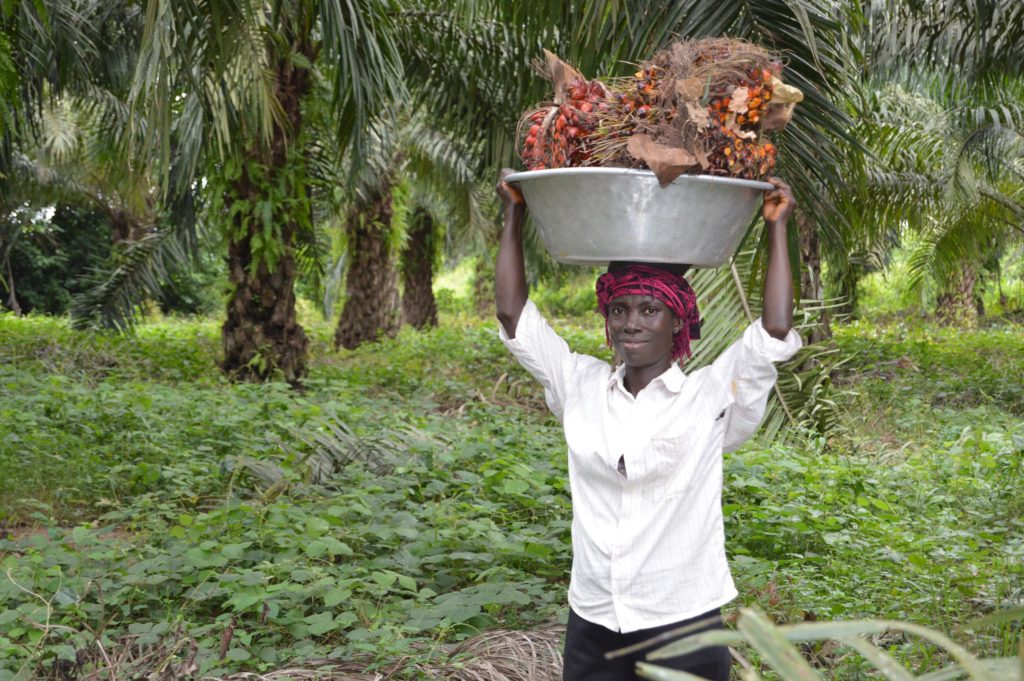
Making a difference through inclusive and innovative financing
Despite the enormous potential and added value of small and medium-sized enterprises for their local communities and economies, many of them struggle to grow their businesses. The current set up of available finance opportunities forms a significant barrier for them to expand. Solidaridad supports these SMEs and works towards fostering the long-term sustainable impact of development work.
To ensure such long-term impact of development interventions and to facilitate the transition to commercial activities, we need to bridge the gap between grant funding and commercial finance. This transition requires partnerships and alignment between donors and financial institutions, innovative finance models and capacity support for professionalization of SMEs.
In this project in Ghana, our collaboration with Achmea Foundation has been invaluable in working towards this goal; their role has brought together both these worlds. Our collaboration has also inspired the launch of PlusPlus, a crowdfunding platform for entrepreneurs in the agricultural sector in Africa, Asia and Latin America.

